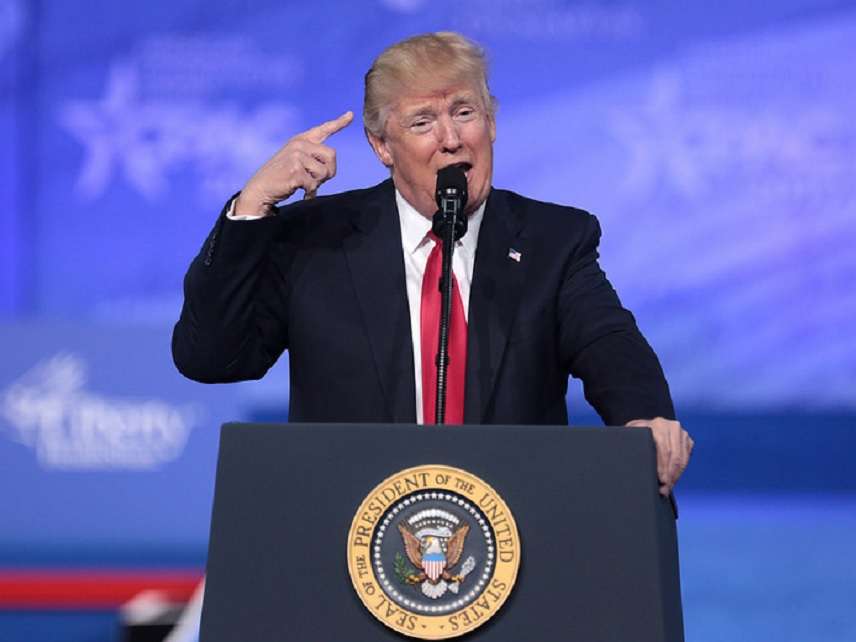Trump Attacks on Washington Post Illustrate Importance of Citizens United
If corporations weren't treated like people, it would be far easier for the Trump administration to silence its critics.
President Donald Trump does not like The Washington Post, which has made critical coverage of the Trump administration a selling point and adopted a new motto, "Democracy dies in darkness," for the Trump era. Trump dislikes the Post so much, in fact, that he's suggesting its owner, Jeff Bezos, is using it as a lobbying tool:
Is Fake News Washington Post being used as a lobbyist weapon against Congress to keep Politicians from looking into Amazon no-tax monopoly?
— Donald J. Trump (@realDonaldTrump) July 25, 2017

Trump, you may recall, is the man who boasted at a presidential debate that if he managed to reduce his tax burden to zero, that made him "smart."
Thankfully for the Washington Post, and despite the paper's aversion to it, the Supreme Court ruling in Citizens United makes it harder for Trump to use the power of the federal government to silence them.
"Because speech is an essential mechanism of democracy—it is the means to hold officials accountable to the people—political speech must prevail against laws that would suppress it by design or inadvertence," Justice Anthony Kennedy wrote for the majority. "If the First Amendment has any force, it prohibits Congress from fining or jailing citizens, or associations of citizens, for engaging in political speech," he wrote further down.
Absent this protection, the federal government could decide that the Washington Post, as Trump claims, was a sort of lobbying arm of Amazon, and thus muzzle their election-related speech.
It's not theoretical. Before Citizens United, as A. Baron Hinkle has pointed out, campaign finance laws "regulated not just donations to candidates and political parties, but also 'electioneering communications' made within 30 days of a primary or 60 days of an election."
Such laws are regularly used by those in power to silence their critics. In Ohio, Hinckle notes, a local Republican leader targeted a blogger who criticized him. That politician argued that because the activist spent $40 a month to maintain the blog where he posted his political criticisms, he had to register with the state and be regulated as a political action committee. Hinkle also mentions a Missouri man who was fined for calling himself a "citizens lobbyist" and heading a group, Missouri First, that sought to influence public policy. Missouri First was not a lobbying firm, and it had no clients. Nevertheless, the professional association of lobbyists brought a complaint against him. In Nevada, another group was targeted for handing out two flyers critical of a Democratic politician.
Without Citizens United, political editorials from newspapers like the Washington Post, and even critical coverage of politicians from such papers, could be considered "electioneering" by election officials, who are ultimately selected by the politicians in power.
Regulation of political speech will, by definition, always be conducted by those already in office, strengthening an already powerful incumbency advantage. Undoing Citizens United would open the door for the Trump administration to go after critical coverage as electioneering communications or even in-kind campaign contributions.


Show Comments (83)